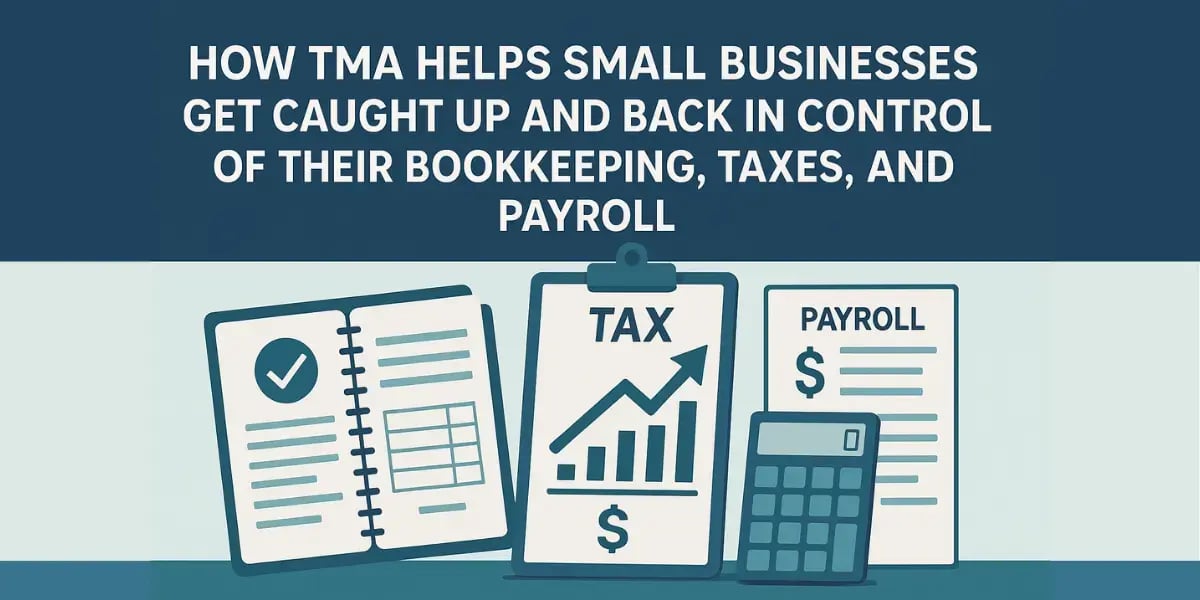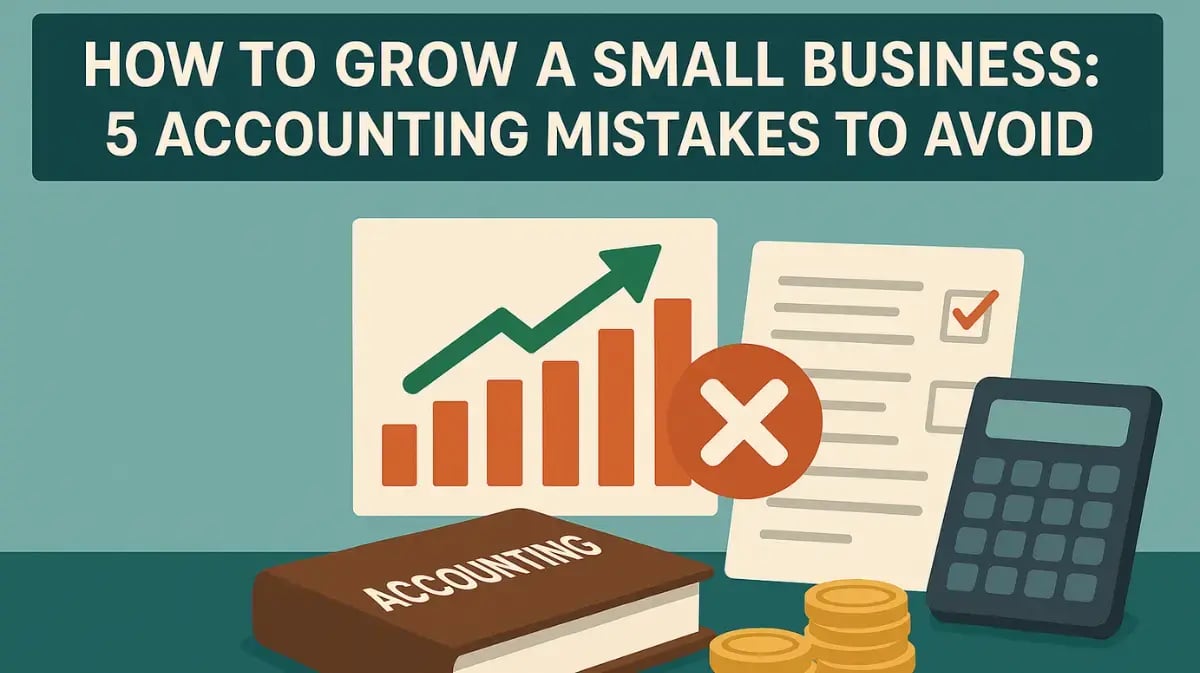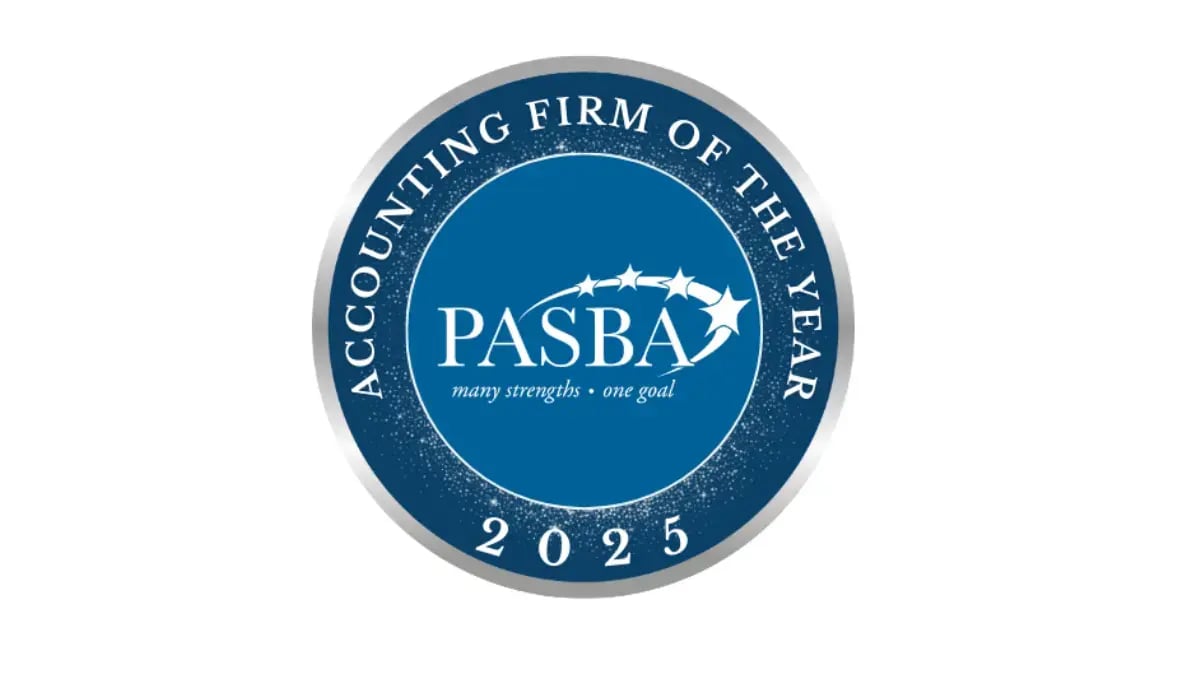How to Switch Accountants: A 5-Step Guide for Small Business Owners
May 29th, 2025
5 min read

Switching accountants might sound like a hassle, but sometimes it’s the smartest move you can make for your business. If you’ve ever felt ignored by your accountant, surprised by tax bills, or frustrated by unclear communication, you’re not alone. Many small business owners reach a point where their accountant simply isn’t meeting their needs anymore. The good news? Making a change is easier than you might think.
In fact, staying with the wrong accountant can quietly cost your business more than you realize—in missed opportunities, avoidable mistakes, and lack of proactive advice.
When It’s Time for a Change
As your business grows, your financial needs become more complex, and a passive or outdated approach just won’t cut it. You deserve a financial resource who brings clarity, responsiveness, and acumen to the table, not just someone who crunches numbers behind the scenes.
Owning and operating a business shouldn’t be so complicated. You should feel supported by a guide who understands the daily pressures of entrepreneurship and who actually helps you make better decisions, not just during tax season, but all year long.
Below, we’ll walk you through:
- Why small businesses switch accountants
- How to recognize when it’s time to make the switch
- Exactly what steps to take for a smooth, stress-free transition
You’ve worked too hard to settle for less than the accounting support your business needs to thrive. Let’s walk through how to switch with confidence.
Why Do Small Business Owners Switch Accountants?
Changing accountants usually happens for a reason. These issues often build up over time, leading to stress, missed opportunities, and a growing sense that your accountant just isn't in your corner. Here are some of the most common complaints business owners have:
1. Lack of Communication
One of the top reasons people switch accountants is poor communication. If it takes weeks to get a reply to a simple email—or worse, you never get one at all—it’s hard to feel confident your accountant has your back. And when tax deadlines are looming, slow responses can give you stress and cost you money.
2. Surprise Tax Bills
Another major issue is unexpected tax bills. If your accountant only looks at your books once a year, it’s nearly impossible for them to help you plan ahead. You might find yourself owing thousands of dollars without warning, just because no one gave you a heads-up during the year.
3. Outgrowing Your Current Firm
Sometimes the issue isn’t a specific mistake—it’s simply that your business has grown and your accounting firm hasn’t kept up. If you find yourself needing payroll help, better financial reports, or more in-depth advice, you might have outgrown your current provider.
What to Gather Before You Switch Accountants
Before you make the move, it helps to get organized. Switching is much easier—and far less stressful—when you have your key financial documents in one place. That way, your new accountant can hit the ground running without delays or confusion.
Having the following items ready will make the transition much smoother:
- Copies of recent financial statements (profit and loss, balance sheet)
- Your last couple years of business tax returns
- Access to your accounting software (like QuickBooks)
- Recent bank and credit card statements
- Payroll records (if applicable)
- Any open or pending projects your current accountant is working on
Make sure your current accountant has finished any agreed-upon tasks before you end the relationship. This helps prevent loose ends, missed deadlines, or incomplete filings that could create headaches down the road. A clean handoff helps your new accountant—and your business—start off on the right foot.
How to Switch Accountants Step-by-Step
If you’re serious about making a change, we understand—you’re probably frustrated and ready to get started right away. But here’s the thing: we don’t want you to hurry off into another bad-fit relationship. Choosing the right accountant is too important to rush. This process takes time, and some of that time should be dedicated to thoughtful research.
The steps below are designed to help you make a smooth, confident transition, without regrets later.
Step 1: Evaluate Your Needs
Start by thinking about what kind of support you really need. Are you just looking for help with taxes? Or do you want full-service accounting, including monthly bookkeeping, payroll, and advice? Do you prefer emails or scheduled calls? Do you want cloud-based software you can access anytime?
Getting clear about what you want will help you choose the right new accountant for your business.
Step 2: Research and Interview Firms
Ask other small business owners for recommendations. Check out reviews on Google and other platforms. Look for accountants who specialize in small businesses and have experience in your industry. Don’t settle on the first one you find—interview at least two or three accountants.
Good questions to ask include:
- What’s your onboarding process like?
- Do you charge hourly or a fixed fee?
- How do you stay in touch with clients?
- Can you show me testimonials or case studies?
If an accountant doesn’t ask for your past tax returns or financials, that’s a red flag. A quality accountant will want to understand your business before giving advice or setting fees.
Step 3: Notify Your Current Accountant
Once you’ve picked your new accountant, it’s time to let your current one know. If you’ve had a long-standing relationship, a phone call is polite. But for most situations, a professional email works just fine.
Don’t cancel the relationship before confirming your new accountant has everything they need. You want to keep the door open just in case something is missing.
Step 4: Transfer Documents and Access
Now it’s time to send your new accountant everything they need. This typically includes:
- Last year’s tax return
- Year-to-date financial reports
- Bank and credit card statements
- Payroll platform access (if applicable)
- Your accounting software login
Make sure to download and save everything before access is removed. This prevents problems later if records are missing or a dispute arises.
Step 5: Review and Sign an Engagement Letter
Before your new accountant gets to work, you should receive a written agreement outlining:
- What services they’ll provide (e.g., bookkeeping, tax filing, payroll)
- How they charge (fixed monthly fee, hourly, etc.)
- How and when you’ll communicate
- Key deadlines and responsibilities
Read this carefully so you understand expectations on both sides. This document protects you and sets the stage for a successful relationship.
Common Mistakes to Avoid When Switching Accountants
Although switching accountants is typically a smooth process, a few missteps can create unnecessary delays or stress. Knowing what to watch out for ahead of time can save you a lot of frustration—and help you make a clean, confident move.
Some common pitfalls include:
- Not backing up records before losing access
- Letting compliance deadlines slip during the transition (like sales tax or payroll filings)
- Not finishing current work with the old accountant
- Not responding to the new accountant's questions
- Waiting too long to switch because you’re embarrassed about messy books
Here’s a tip: Most accountants are used to messy books! Don’t wait until everything is perfect to make the switch—if you could fix it on your own, you wouldn’t need help in the first place.
The Bottom Line: You Deserve More Than Just a Tax Preparer
Owning a business is hard. You’ve got a million things on your plate, and accounting shouldn’t add more stress—it should bring relief. If your current accountant is reactive, vague, or missing in action when you need them most, it might be time for a change.
You deserve more than someone who just files your taxes. You deserve an ally who helps you feel confident, informed, and in control of your business finances. Someone who understands your goals, anticipates your needs, and helps you stay on track—not just during tax season, but every month of the year.
Switching accountants might feel like a big step, but it could be the best move you make for your business this year. And when you’re ready, we’re here to help you make that transition simple, supportive, and stress-free.
Ready to Take the Next Step?
If you’re ready to stop feeling overwhelmed and start getting support, now’s the perfect time to explore your options. Switching accountants doesn’t have to be complicated or stressful. In fact, with the right help, it can be one of the best decisions you make.
At TMA Accounting, we’ve helped hundreds of small business owners transition to better support. We understand the pressure you’re under, and we believe you deserve an accountant who’s proactive, responsive, and cares about your success.
Let’s take the pressure off your plate and put a trusted financial guide in your corner.
Schedule a free consultation today to learn how TMA can help you make a smooth switch—and finally get the accounting support your business deserves.
Blog Disclaimer: Nothing in this post constitutes legal, tax, or financial advice and is intended for informational and educational purposes only. This informational and educational material is not intended, and must not be taken, as legal, tax, or financial advice on any particular set of facts or circumstances or as recommendations that are suitable for any specific person. You need to contact a lawyer, accountant, or financial adviser licensed in your jurisdiction for advice on your specific questions, issues, and concerns. View our full Terms of Use here.





















.webp?width=1200&height=673&name=5%20Common%20Accounting%20Frustrations%20(and%20How%20to%20Find%20a%20Better%20Solution).webp)

